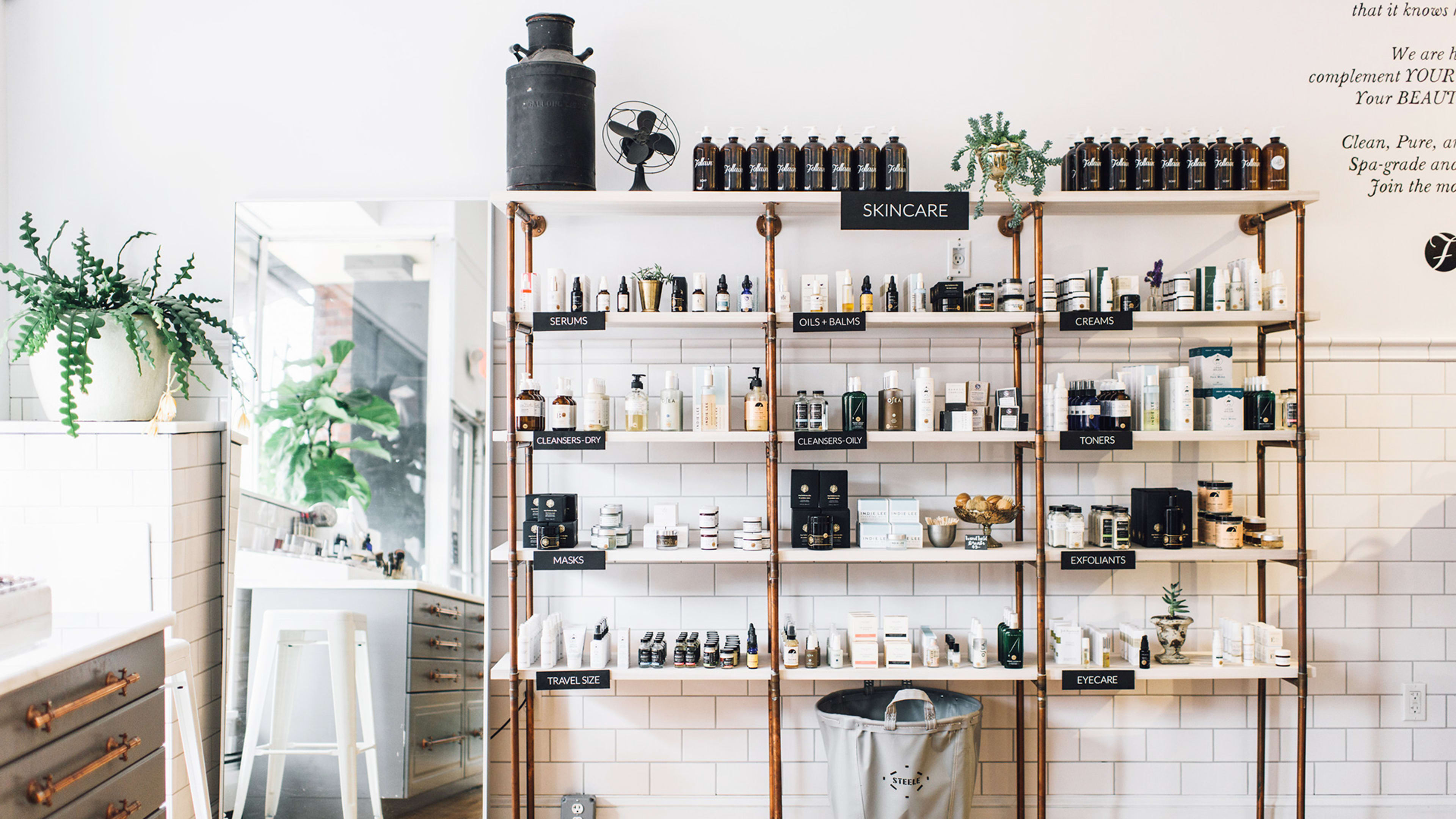Store associates at Follain are used to hearing people’s intimate secrets. Tara Foley, who founded the natural beauty chain in 2013, says it’s not unusual for employees at its locations in New York and Boston to be the first to learn that, for instance, someone is pregnant. That only makes sense when you think about the nature of the business. “Doctors advise women to stop using certain chemicals during their pregnancy,” Foley tells Fast Company. “So they come here as soon as they find out, looking for alternative beauty products.”
Unfortunately, it is not always good news that brings people into the store. Follain often sees customers who have recently been diagnosed with serious illnesses like cancer. When patients are undergoing a harsh treatment that makes their immune system vulnerable, like chemotherapy, they are generally encouraged to stay clear of toxins in their creams and soaps, and research shows that over 90% of cancers are caused by lifestyle factors, including pollutants in products. “Sometimes, it’s the first time that they realize that chemicals in their skin care are carcinogenic,” Foley says.
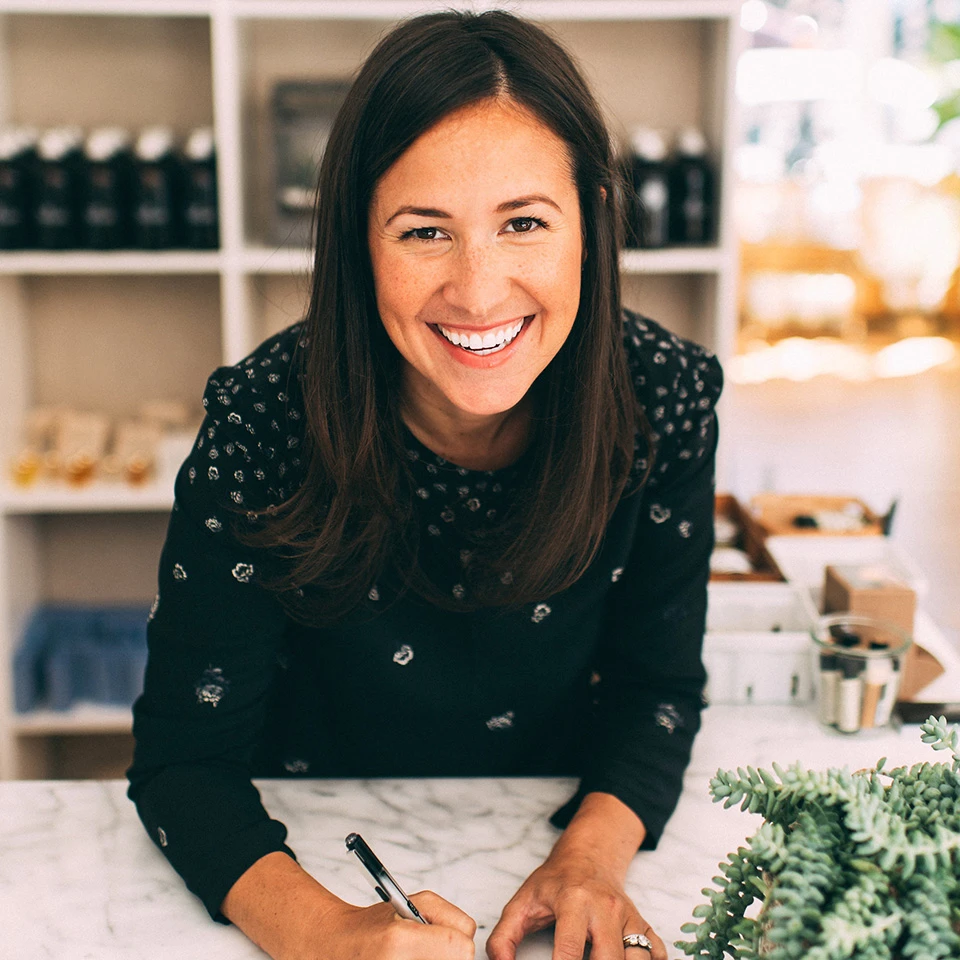
Foley wants to give them a platform.
Today, she’s relaunching Follain’s website to make it a place where consumers can learn about the most effective natural beauty brands on the market and, importantly, find the appropriate combination of products for their specific needs. Follain is already very selective about picking brands—it only stocks 57 of them. And it only stocks a couple of each brand’s products, ones it has tested to ensure they deliver on their promises. Until now, customers would learn about these products by speaking to knowledgeable Follain store representatives, but starting today, online customers can get the same kind of customized recommendations. This kind of education and personalization, Foley believes, is necessary to convince consumers to give natural beauty a try.
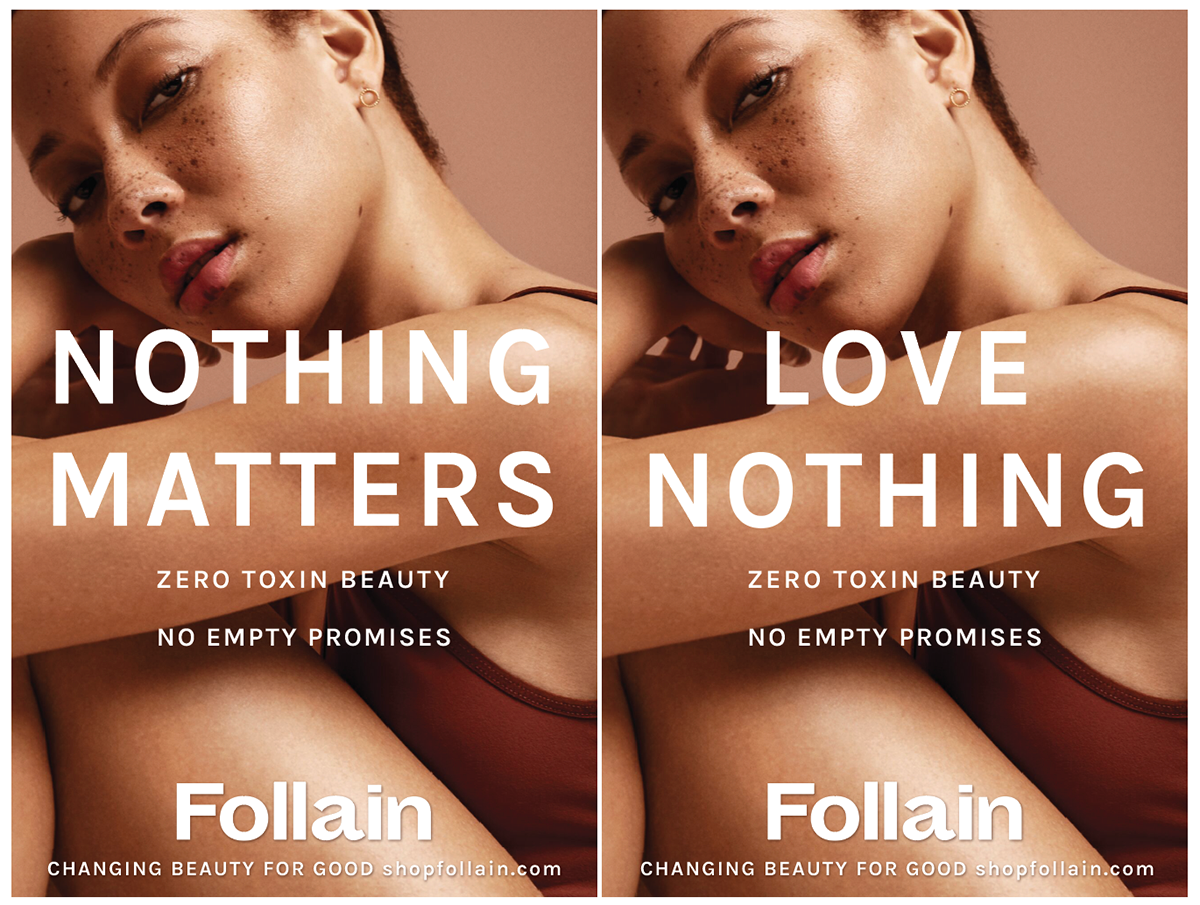
In Foley’s experience, many consumers turn away from natural brands because they believe they are ineffective and unable to address problems like acne, rosacea, or wrinkles. Part of this has to do with the fact that the industry is so fragmented, so brands creating problem-solving products are often lumped together with brands that pour some random oils into a bottle and call it a miracle lotion.
But part of it is also that consumers believe that you need to suffer, on some level, for beauty. “There’s this pervasive notion that the toxins in products are actually what makes them work,” Foley says. “But when you think about it, that makes no sense at all: Skin care problems are often a result of imbalances caused by toxins.”
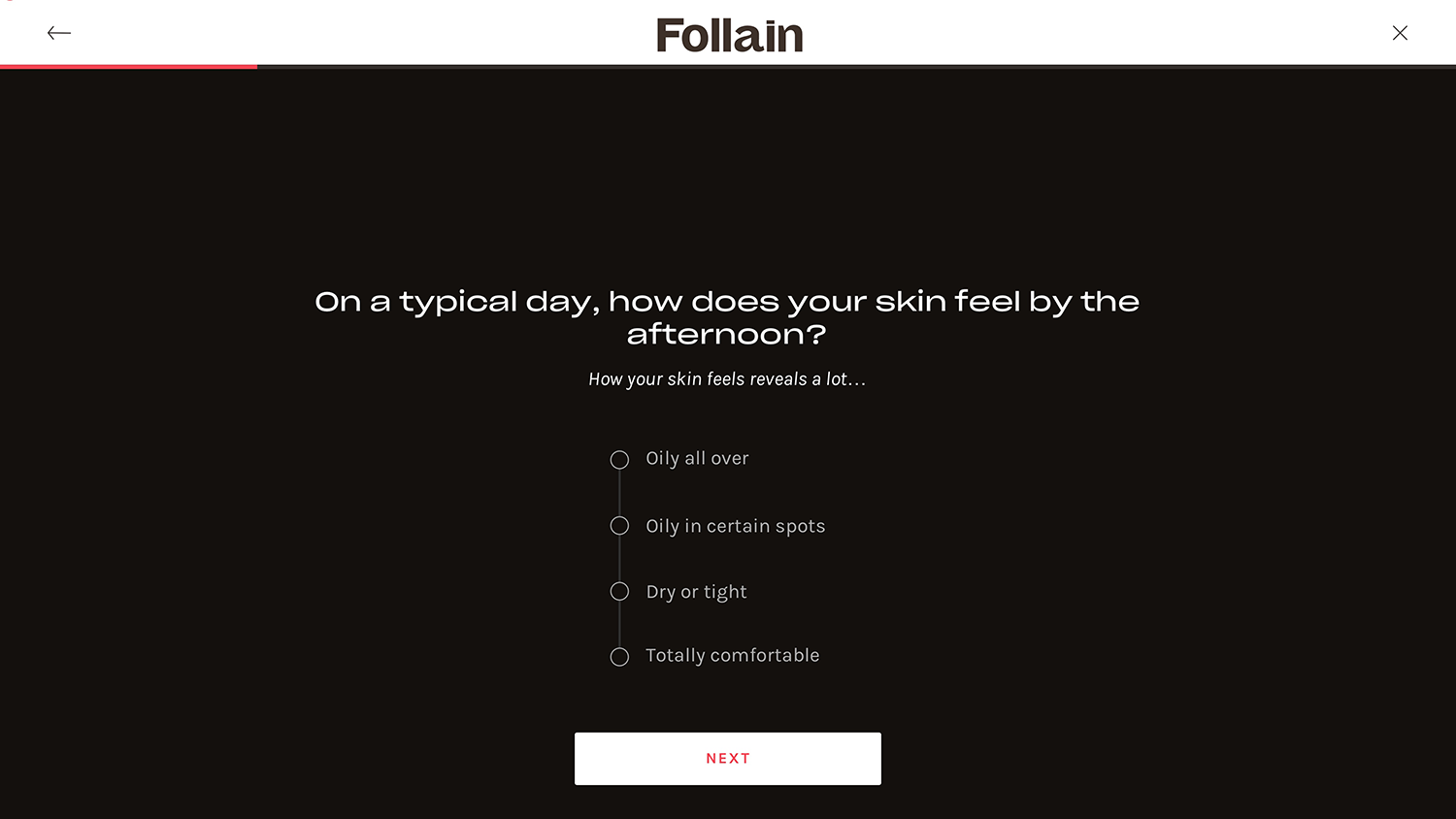
Data-Driven Beauty
Follain is partnering with brands that take a rigorous, science-based approach to natural beauty. One of them is True Botanicals, a two-year-old startup founded by Hillary Peterson, a former marketing executive at Levi’s, and Christina Mace-Turner, a former director of content strategy at Apple. Like many of Follain’s customers, Peterson came to natural beauty after receiving devastating news—in her case, she learned she had thyroid cancer two decades ago. “I started learning more about what causes cancer, and I was shocked to discover how unregulated the beauty industry is,” she says. “There are many dangerous ingredients outlawed in Europe that American companies are allowed to use.”
Back then, there weren’t many mainstream natural beauty brands on the market, so Peterson began looking into what it would take to create her own natural skin care line. The problem, she discovered, is that while lab-concocted ingredients are scientifically tested for efficacy (sometimes on rats), the powers of natural ingredients tended to be shared by word of mouth or passed from generation to generation in traditional communities.
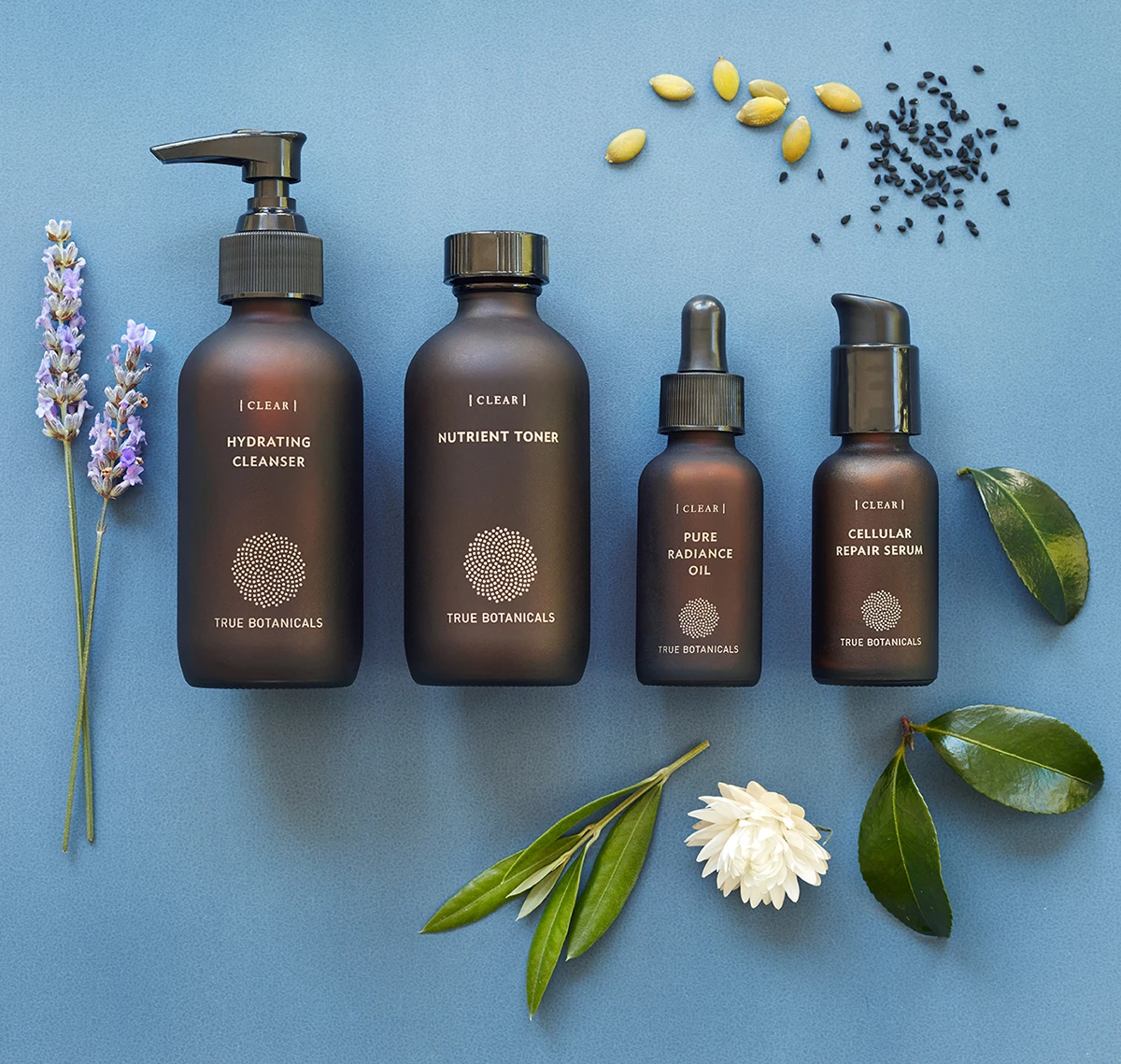
True Botanicals, which is based in Mill Valley, California, has invested heavily in building a team of chemists and scientific advisers who can help create formulations that work. They include Terrence Collins, a professor of green chemistry at Carnegie Mellon University, and Kurt Schnaubelt, the founder and scientific director of the Pacific Institute of Aromatherapy. The brand also does clinical trials, much like the bigger beauty brands do. It has discovered that its anti-aging serum works better than Crème de La Mer across every test measurement from wrinkle reduction to increased hydration, and its acne regimen outperforms Proactiv+ in reducing acne lesions over time.
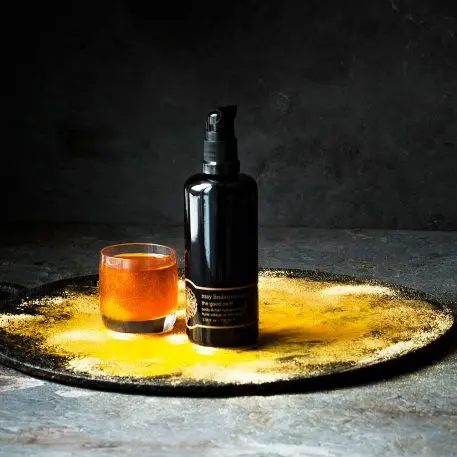
The brand’s website lists ingredients in each product and explains what each does. Camellia seed oil, for instance, fights free radical damage that causes wrinkles, and calendula flower extract is antibacterial. Partnering with Follain is useful, Mace-Turner says, because it serves as a sort of marketing engine, helping consumers discover products that work for them and learn about the brand’s philosophy.
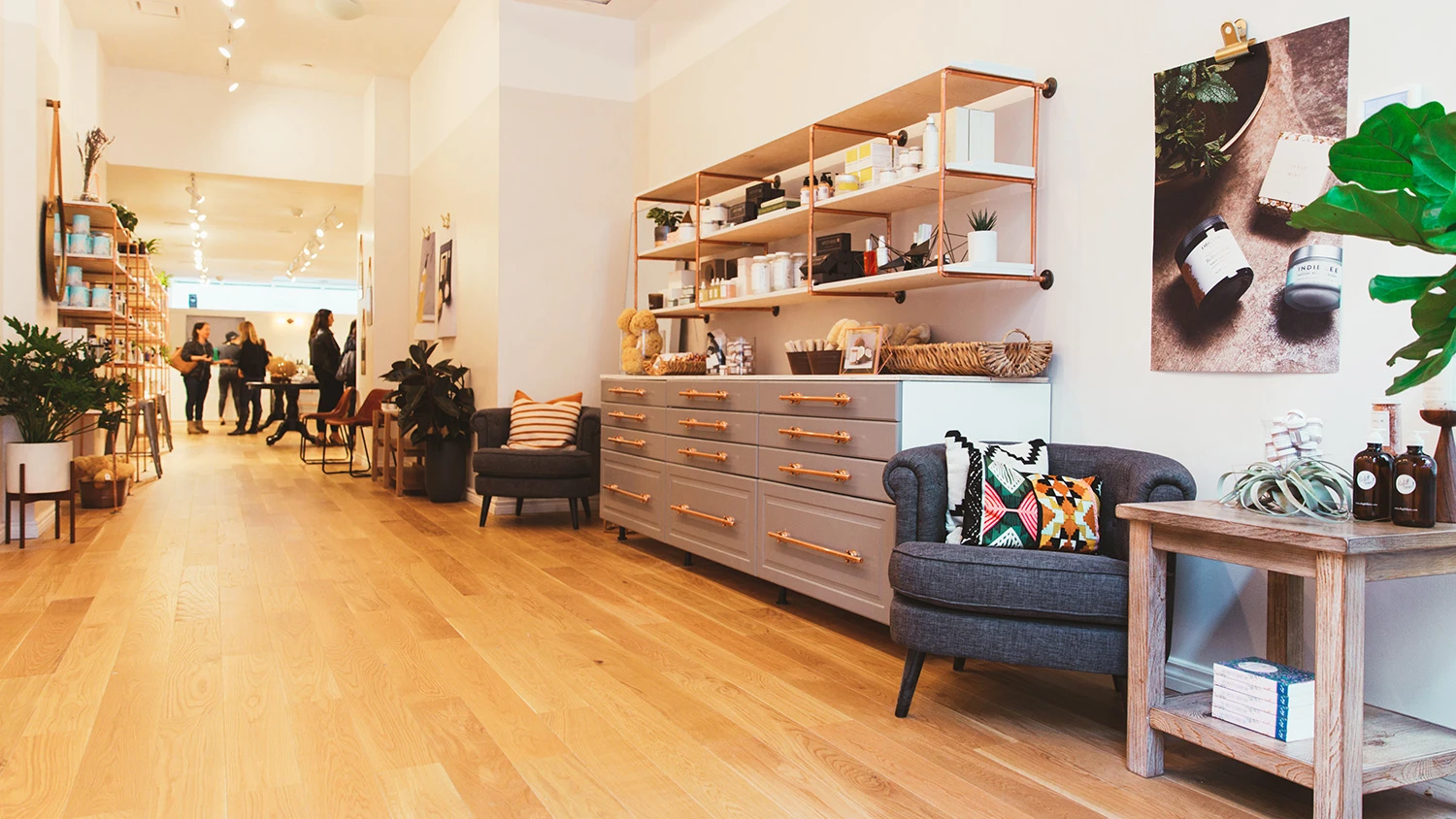
Bringing Hidden Gems Into The Mainstream
But some brands within the Follain stable are far less scientifically oriented. This is where Foley and her team step in to test products and explain how they work.
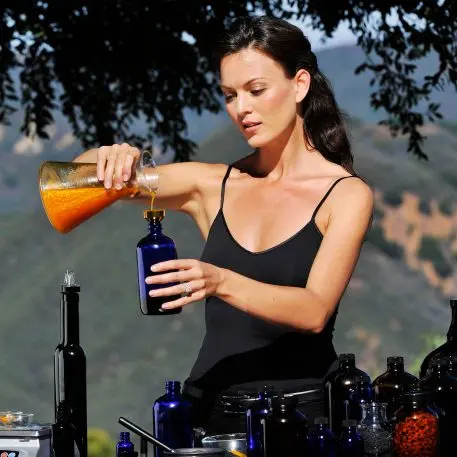
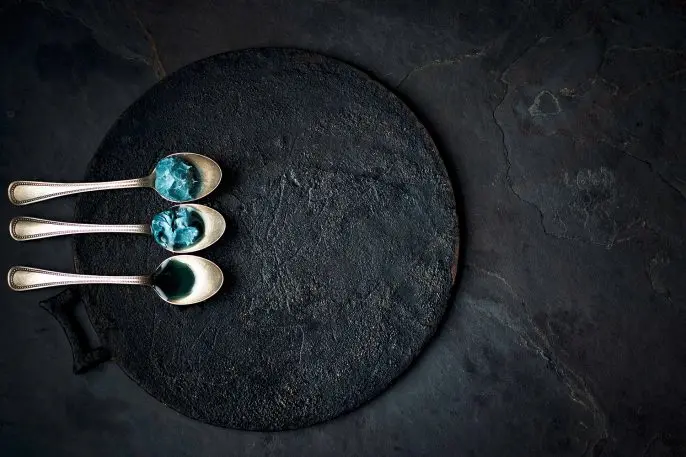
As she grew up, Lindstrom discovered she had inherited extreme skin sensitivities from her mother and grandfather. “I would go to the mall to buy beauty products with my middle school friends and the skin on my hands would start peeling,” she says. “As an adult, I realized that natural beauty is so important because for so many people, chemical-laden beauty products are so often associated with pain and suffering.”
After a career as a chef, a model, and a makeup artist, she started creating products in her kitchen. Her new company grew entirely through word of mouth with the help of natural beauty stores. One of the earliest was Spirit Beauty Lounge, which launched in 2008 but recently closed. Over time, retailers like Barneys and Net-a-Porter started carrying Lindstrom’s brand. Follain wants to support brands like May Lindstrom by educating customers about the science behind the ingredients she uses, and providing data about how effective it is, so that they feel more comfortable investing in her products.
Indie Lee also launched her natural beauty business from her home—or more accuately, her garden. Lee decided to enter the market when she was told she had a brain tumor caused by environmental toxins. “I asked my doctors how this could have happened—I eat healthy organic food,” she says. “Then they told me that the culprit could have been something in a product I was putting on my skin. I was shocked.”
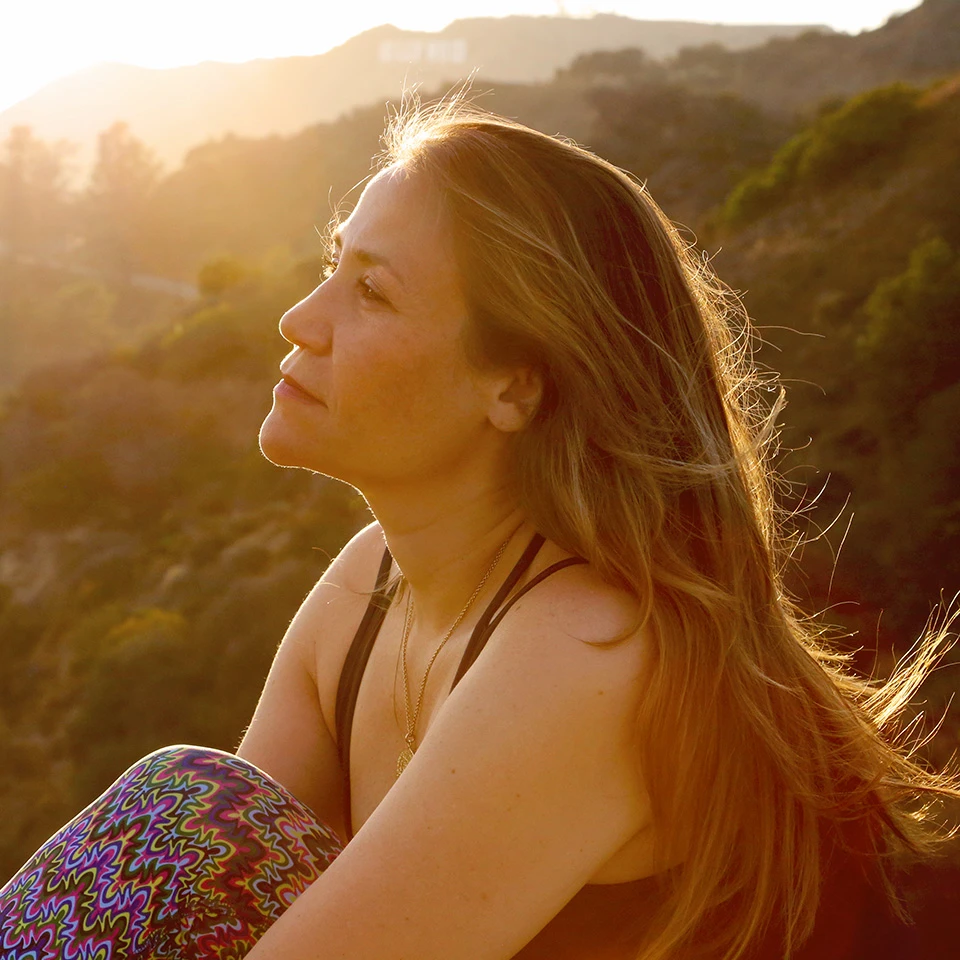
Lee’s only hope was a surgery that came with a 40% risk that she would not wake up. She took that risk, woke up, and decided to launch a clean beauty business. Lee had a thriving garden in her home in upstate New York, so she tried to cultivate plants that were known for their beneficial properties to the skin. “I first started formulating products based on what I needed,” she says. “Cleansers, moisturizers, anti-aging serums.”
After she launched her collection in 2011, her pretty bottles and well-designed packaging allowed her to attract the interest of mainstream retailers like Anthropologie and Blue Mercury. But while these brands present Indie Lee products alongside other non-green brands, Follain is keen to highlight the brand’s unique approach to finding nontoxic ingredients that work. The brand’s experts can speak to the efficacy of the products and ingredients for consumers who are interested in these aspects of the products.
An Evolving Industry
It’s still not entirely clear what chemicals in beauty products are harmful and why. There are studies that suggest that parabens, which are commonly used as a preservative in personal care products, can alter hormone levels, which can increase cancer risks, alter the development of a fetus, and impair fertility. Tricoslan, a preservative, could be an endocrine disruptor and carcinogen, but there isn’t enough research to determine its effects. (Its use has been restricted in Canada and Japan based on existing evidence.)
When it comes to makeup, things get even murkier. There are only a few clean makeup brands on the market—Beautycounter, RMS, and Ilia are among them—but there isn’t an established standard about what ingredients are safe to include. “I’ve found that there’s no clear line in the sand about what counts as safe,” says Sasha Plavsic, founder and creative director of Ilia.
Plavsic points out that makeup is a completely different class of product than skin care. To be effective, it requires color pigments that will stay on skin. Things like eyeshadows and highlighters might contain heavy metals—naturally occurring materials such as lead, arsenic, and mercury that are known human carcinogens. The U.S. government has not set any allowable limits on these materials, so brands need to set their own standards. “Each of us has to analyze our products and make our own calls,” Plavsic says.
This is where Follain hopes it can make a difference. Foley’s team is on the front lines of the beauty industry, hearing about the choices that different brands are making, following new medical research, and learning more about toxins and their effects on the body. By consolidating this research, Follain can provide a more comprehensive picture to consumers, helping them navigate the complicated, murky world of natural beauty. “We know firsthand that the natural beauty space is incredibly confusing,” Foley says. “We see our role as advocating on behalf of our customers and giving them all the information they need to make smart decisions.”
Recognize your brand’s excellence by applying to this year’s Brands That Matter Awards before the early-rate deadline, May 3.
